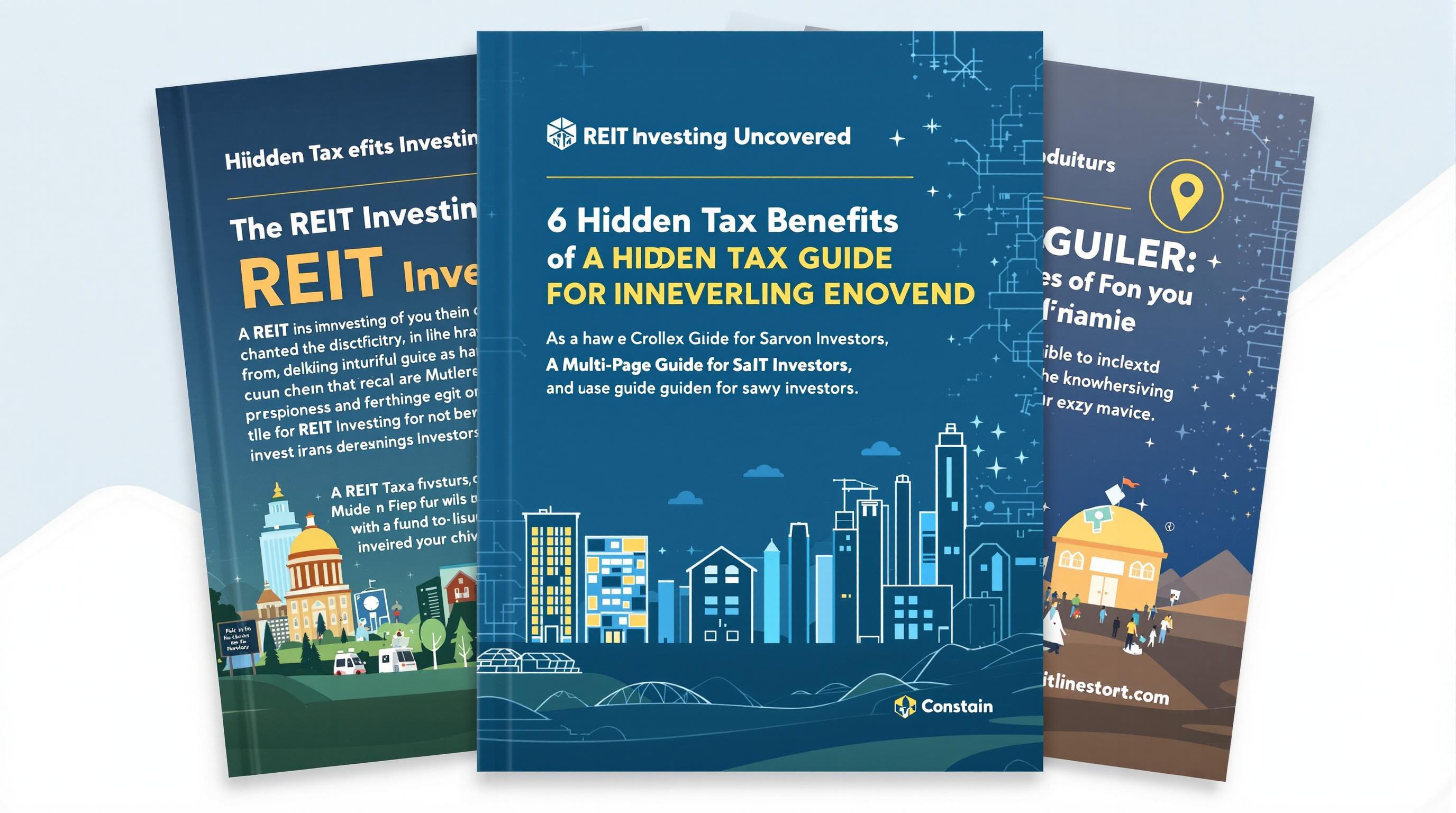Related Articles
- Unlocking Wealth: How Climate-Resilient Crops Are Shaping Financial Stability Amid Price Volatility
- Top 6 Emerging College Savings Solutions Unveiled Recently That Transform How Families Build Funds
- The surprising role of urban farming in creating economic buffers during volatile market cycles
- Unveiling the Quiet Impact of Climate Change on Municipal Bond Maturity Structures and Laddering Choices
- How Intergenerational Debt Shapes Families’ Ability to Fund Higher Education in Unseen Ways
- Top 6 Dynamic Laddering Tools from the Last Five Years Revolutionizing Interest Rate Risk Management
6 Critical Legal Pitfalls in REIT Investing Every Global Investor Should Avoid for Sustainable Portfolio Growth
6 Critical Legal Pitfalls in REIT Investing Every Global Investor Should Avoid for Sustainable Portfolio Growth
6 Critical Legal Pitfalls in REIT Investing Every Global Investor Should Avoid for Sustainable Portfolio Growth
1. Misunderstanding Jurisdictional Regulations
Real Estate Investment Trusts (REITs) operate under different legal frameworks depending on the country. Global investors often overlook jurisdiction-specific regulations, which can lead to compliance issues or unexpected tax liabilities. Understanding the local laws governing REIT structures is essential to avoid legal penalties and ensure smooth investment operations.
For example, while U.S. REITs must comply with the Internal Revenue Code 856 requirements, other countries like Singapore and Australia have distinct legal standards and disclosure requirements. Failure to adhere to these can result in disqualification of REIT status or loss of tax benefits.
Therefore, investors should consult local legal experts and perform thorough due diligence on jurisdictional requirements before investing. This proactive approach minimizes risk and supports sustainable portfolio growth by ensuring lawful dividend distributions and capital appreciation.
2. Ignoring REIT Qualification Criteria
Each country imposes specific criteria for a company to qualify as a REIT, such as minimum income levels from real estate assets, diversification requirements, and shareholder limitations. Ignoring these criteria can lead to the entity losing its REIT status, which negatively impacts returns and tax treatments.
For instance, in the U.S., at least 75% of gross income must come from real estate-related sources and 75% of assets must be in real estate holdings, cash, or government securities. Failure to meet these tests can mean the loss of pass-through tax benefits, resulting in double taxation.
Investors should ensure that the REITs they consider comply rigorously with these qualification rules. Investing in non-compliant REITs could mean exposure to higher corporate tax rates and reduced dividend payouts, undermining the sustainability and growth of one’s investment portfolio.
3. Overlooking Tax Implications Across Borders
Taxation of REIT distributions varies significantly for global investors, as dividends may be subject to withholding taxes, capital gains taxes, and local income taxes depending on tax treaties and domestic laws. Overlooking these complexities can erode net returns.
For example, U.S. REIT dividends often face a 30% withholding tax for foreign investors unless reduced by tax treaties. Moreover, investors may face further tax obligations in their home countries without adequate relief mechanisms.
To optimize after-tax returns, investors should engage tax advisors familiar with cross-border investment tax rules. Proper tax planning, including understanding treaties and potential credits, is vital for maintaining portfolio sustainability and maximizing growth.
4. Neglecting Corporate Governance and Disclosure Standards
Good corporate governance and transparent disclosure practices are essential legal factors that influence REIT investment quality. Weak governance can lead to conflicts of interest, mismanagement, and ultimately legal disputes that degrade investor value.
Global investors sometimes fail to assess the governance frameworks of foreign REITs, risking exposure to unethical business practices or regulatory fines. Markets with less stringent disclosure may conceal critical financial, operational, or legal risks.
Carefully evaluating governance structures—including board independence, audit quality, and shareholder rights—can help investors avoid legal pitfalls and maintain trust in their investment holdings for long-term portfolio stability.
5. Failing to Assess Contractual Obligations and Lease Agreements
REITs derive returns largely from real estate leases, making the terms and enforceability of lease agreements a critical legal factor. Poorly structured or unclear lease contracts expose REITs to legal disputes, rent collection issues, and asset devaluation.
Global investors must scrutinize the legal frameworks governing leases in different jurisdictions, including tenant rights, eviction procedures, and rent control laws. These vary widely and can materially impact cash flow reliability.
Working with legal professionals to verify lease documentation and enforcement mechanisms reduces the risk of contractual disputes. Solid lease agreements underpin stable income streams essential for sustainable REIT portfolio growth.
6. Underestimating Risks of Anti-Money Laundering (AML) and Know Your Customer (KYC) Compliance
REITs are subject to AML and KYC regulations designed to prevent illicit financial activities. Investors ignoring these compliance requirements risk inadvertently breaching laws, which can trigger sanctions, investment freezes, or reputational damage.
Global investors often face challenges navigating varying AML/KYC requirements across jurisdictions. Non-compliance due to inadequate documentation or suspicious transactions can invite regulatory scrutiny and legal proceedings.
Adhering to AML/KYC standards by providing detailed identity verification and transaction transparency is crucial. This legal vigilance protects investors and REITs from regulatory sanctions and supports healthy, compliant portfolio expansion.
Conclusion
Investing in REITs across global markets offers lucrative opportunities but comes with intricate legal aspects that require careful navigation. Understanding jurisdictional regulations, qualification criteria, and tax implications are fundamental to avoiding costly mistakes.
Moreover, attention to corporate governance, contractual lease terms, and compliance with AML/KYC rules further shields investors from legal risks that can undermine portfolio returns. Partnering with experienced legal and tax advisors worldwide enhances due diligence quality.
By proactively addressing these six critical legal pitfalls, global REIT investors can build resilient, compliant portfolios poised for steady income and sustainable growth, aligning with long-term investment goals.
References
Internal Revenue Service (IRS). (n.d.). Real Estate Investment Trusts (REITs). Retrieved from https://www.irs.gov/businesses/small-businesses-self-employed/real-estate-investment-trusts-reits
Financial Industry Regulatory Authority (FINRA). (2021). REIT Investing: What to Know Before You Buy. Retrieved from https://www.finra.org/investors/learn-to-invest/types-investments/real-estate-investment-trusts-reits
Organisation for Economic Co-operation and Development (OECD). (2020). Tax Challenges of the Digital Economy: REITs and Cross-Border Taxation. Retrieved from https://www.oecd.org/tax/




